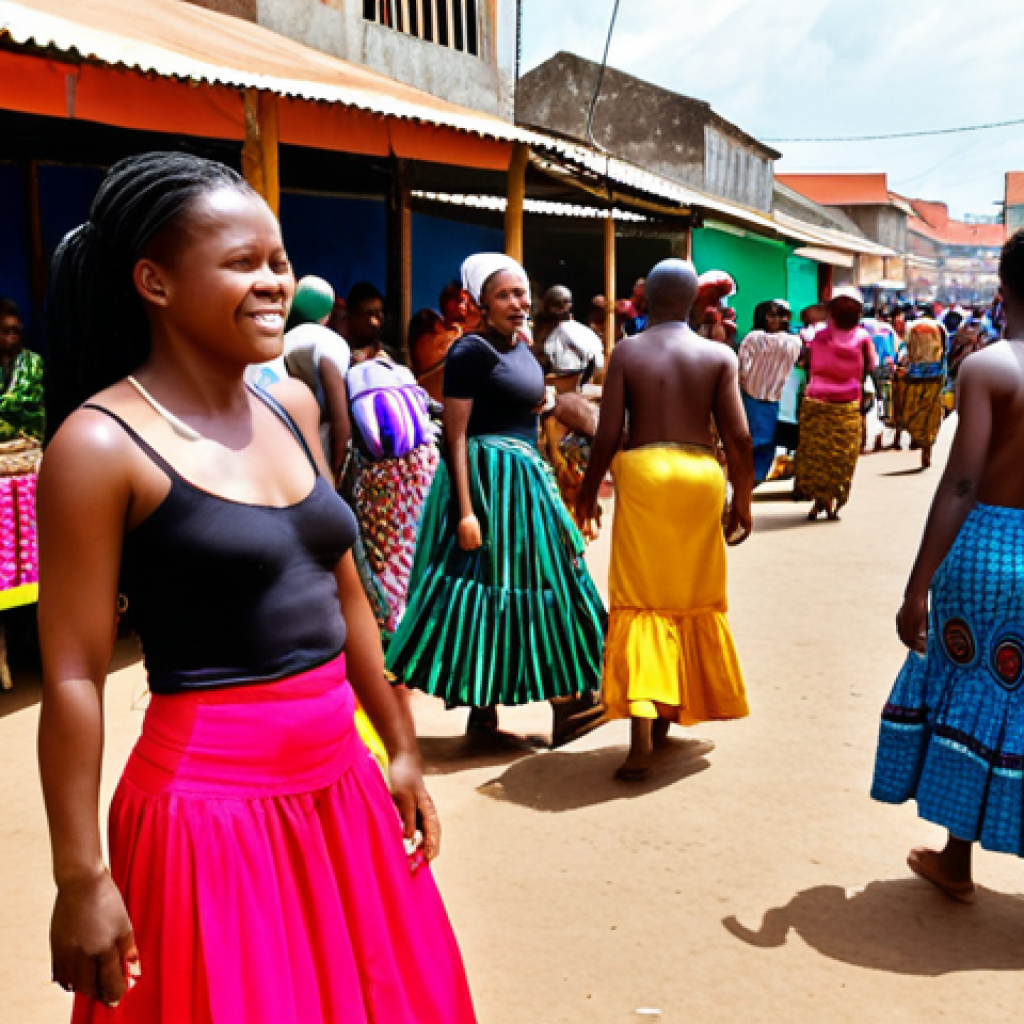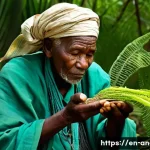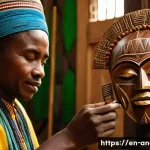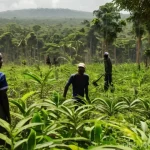Ever felt that pull, that tug at your heart to do something meaningful, something bigger than yourself? I know I have. The world can feel overwhelming sometimes, but then you remember that even small acts of kindness can ripple outwards.
Lately, I’ve been researching volunteer opportunities abroad, and Angola, with its vibrant culture and history, has really caught my eye. Imagine immersing yourself in a new community, learning a different way of life, and contributing your skills to a cause you believe in.
It sounds like a truly transformative experience, right? I’ve been digging deep to find the best options and ways to make a real difference. Let’s delve into the specifics in the article below.
Okay, I understand. Here’s the blog post content:
Unearthing the Soul-Stirring Allure of Volunteering in Angola
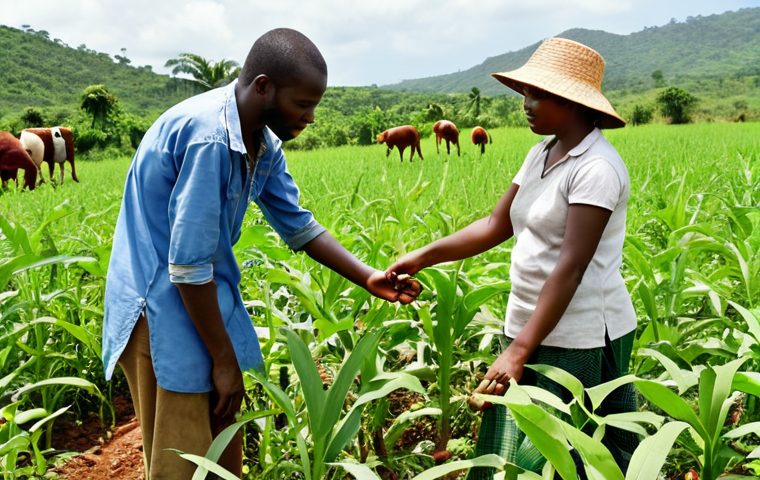
Imagine trading your daily grind for something truly meaningful. I’ve been feeling this tug lately – that urge to step outside my comfort zone and contribute to something bigger.
Angola, with its rich history and vibrant culture, keeps popping up in my mind. The idea of immersing myself in a completely different way of life, while simultaneously offering my skills to those in need, is incredibly appealing.
It’s not just about giving back; it’s about personal growth and gaining a new perspective. I’ve found myself daydreaming about the sheer impact a well-placed volunteer could have on the local community.
There’s this incredible organization focused on sustainable farming initiatives, and I can just picture myself getting my hands dirty, working alongside local farmers, and learning ancient techniques passed down through generations.
It’s the kind of experience that changes you, you know? I’m not talking about a quick photo op; I’m talking about genuine connection and contribution.
Delving into Angola’s Volunteer Landscape
Volunteering abroad can seem daunting, but with proper research, it can be one of the most rewarding experiences. Angola needs help in so many sectors, from teaching English in rural schools to assisting with wildlife conservation efforts.
Imagine waking up each morning with a sense of purpose, knowing that your actions, however small, are making a difference. Just the thought of helping a child learn to read or assisting a community in gaining access to clean water fills me with energy.
These are real problems that need real solutions, and volunteers can play a crucial role in bridging those gaps.
The Call of Adventure: Cultural Immersion in Angola
Let’s be honest, part of the allure of volunteering abroad is the chance to explore a new culture. Angola has a fascinating mix of Portuguese colonial influences and indigenous traditions.
Think of vibrant markets overflowing with colorful textiles, the rhythmic beats of Kizomba music filling the air, and the tantalizing aroma of traditional Angolan cuisine wafting from street vendors.
It’s a sensory explosion that ignites your soul. Beyond the surface-level tourism, you have a chance to connect with the people on a deeper level, learn their stories, and gain a genuine understanding of their way of life.
This kind of cultural immersion is invaluable and expands your worldview in ways you never thought possible.
Finding the Right Fit: Matching Your Skills with Angola’s Needs
One of the most important steps in choosing a volunteer opportunity is finding a program that aligns with your skills and interests. What are you good at?
What are you passionate about? Perhaps you’re a skilled teacher, a medical professional, or a tech-savvy individual. There are countless organizations in Angola seeking volunteers with a wide range of expertise.
Don’t underestimate the value of your own abilities! Even seemingly small contributions can have a significant impact. When I was researching, I stumbled upon a program seeking volunteers to help digitize historical documents.
While I’m not a professional historian, I have a knack for organization and attention to detail. It struck me that even my seemingly mundane skills could be put to good use in preserving Angola’s rich cultural heritage.
Evaluating Volunteer Organizations: Key Questions to Ask
Before committing to a volunteer program, it’s crucial to do your research and ask the right questions. What is the organization’s mission? How long have they been operating in Angola?
What is their track record? Do they have a good reputation within the local community? It’s also important to understand how your contributions will be used and whether the organization has a sustainable approach.
You want to ensure that your efforts are truly benefiting the community and not causing unintended harm. Transparency is key! A reputable organization will be happy to answer your questions and provide you with detailed information about their programs and impact.
The Practicalities: Visas, Accommodation, and Costs
Okay, let’s get down to the nitty-gritty. Volunteering abroad involves practical considerations like visas, accommodation, and costs. Visa requirements can vary depending on your nationality, so it’s essential to start the application process well in advance.
Accommodation options can range from shared housing with other volunteers to homestays with local families. Be sure to inquire about the living conditions and amenities before you arrive.
As for costs, factor in flights, visa fees, accommodation, food, and travel insurance. Some organizations offer volunteer packages that cover these expenses, while others require you to pay your own way.
Fundraising can be a great way to offset the costs of volunteering and garner support for your chosen cause.
Embracing the Challenges: Preparing for a Transformative Journey
Volunteering in Angola is not always going to be easy. You’ll likely face challenges like language barriers, cultural differences, and limited resources.
But it’s these challenges that make the experience so transformative. Stepping outside your comfort zone forces you to grow, adapt, and develop resilience.
Embrace the unknown, be open to learning from others, and don’t be afraid to ask for help. Remember, you’re there to make a difference, but you’re also there to learn and grow.
These experiences will stay with you long after you’ve returned home, shaping your perspective and inspiring you to continue making a positive impact on the world.
Navigating Cultural Differences with Grace and Respect
Angola has a unique culture, and it’s essential to approach it with sensitivity and respect. Before you arrive, take some time to learn about Angolan customs, traditions, and social etiquette.
Be mindful of your behavior and dress appropriately. Avoid making assumptions or generalizations about the local people. Be open to trying new things and learning from others.
Remember, you’re a guest in their country, and it’s your responsibility to adapt to their way of life. A little bit of cultural awareness can go a long way in building bridges and fostering meaningful connections.
Language Barriers: Tips for Effective Communication
Although Portuguese is the official language of Angola, many people also speak indigenous languages. If you don’t speak Portuguese, it’s worth learning a few basic phrases before you go.
Even simple greetings like “Olá” (hello) and “Obrigado” (thank you) can make a big difference. If you’re planning on staying for an extended period, consider taking a Portuguese language course.
In the meantime, don’t be afraid to use gestures, drawings, or translation apps to communicate. Remember, communication is about more than just words.
A smile, a kind gesture, and a willingness to listen can bridge any language barrier.
Making a Sustainable Impact: Beyond the Short-Term Volunteer Trip
Volunteering abroad should be about more than just a quick fix. It’s about creating sustainable change that benefits the community in the long term. This means working alongside local people, empowering them to develop their own solutions, and building their capacity to address their own challenges.
Avoid projects that are dependent on outside assistance or that undermine local initiatives. Instead, focus on supporting projects that promote self-sufficiency and sustainability.
By investing in the long-term well-being of the community, you can help create a brighter future for generations to come.
Empowering Local Communities: A Collaborative Approach
The most effective volunteer projects are those that are driven by the needs of the local community. Before you arrive, take the time to listen to the people you’ll be working with.
What are their priorities? What are their challenges? What are their aspirations?
Avoid imposing your own ideas or solutions. Instead, work collaboratively with the community to develop strategies that are tailored to their specific needs.
Remember, you’re there to support them, not to tell them what to do. By empowering local communities to take ownership of their own development, you can help create lasting change.
Leaving a Legacy: Contributing to Long-Term Development
When your volunteer trip comes to an end, it’s important to think about how you can continue to support the community from afar. Perhaps you can donate to a local organization, raise awareness about the issues they’re facing, or mentor a young person in the community.
You can also share your experiences with others and inspire them to get involved. By staying connected and continuing to contribute in meaningful ways, you can help ensure that your volunteer trip has a lasting impact.
| Volunteer Area | Description | Skills Needed | Potential Impact |
|---|---|---|---|
| Education | Teaching English or other subjects in schools | Patience, teaching experience, fluency in English | Improved literacy rates, enhanced educational opportunities |
| Healthcare | Assisting medical professionals in clinics or hospitals | Medical training, nursing experience, compassion | Improved access to healthcare, reduced disease rates |
| Community Development | Supporting local initiatives, building infrastructure | Teamwork, problem-solving, adaptability | Improved living conditions, strengthened community bonds |
| Environmental Conservation | Participating in reforestation projects, wildlife protection | Physical fitness, environmental awareness, dedication | Preserved biodiversity, sustainable resource management |
Angola: A Land of Resilience, Hope, and Opportunity
Angola has faced many challenges in its history, including a long civil war and widespread poverty. But despite these difficulties, the Angolan people have shown remarkable resilience and determination.
They are a warm, welcoming, and incredibly resourceful people. Volunteering in Angola is not just about helping others; it’s about learning from their experiences, gaining a new perspective on life, and witnessing the power of the human spirit.
It’s an opportunity to be part of something bigger than yourself and to make a lasting difference in the world.
Finding Gratitude in Giving
In the end, you find yourself unexpectedly gaining much more than you could ever give. Volunteering is like a mirror. The more you give, the more you receive in return.
I’m not talking about material things; I’m talking about inner peace, a sense of purpose, and a deeper understanding of the world. The gratitude you receive from the people you’re helping is a powerful motivator.
Knowing that you’re making a positive impact on their lives fills you with joy and a sense of fulfillment that’s hard to describe.
The Enduring Appeal of Angola’s Spirit
What is it about Angola that is so appealing? Perhaps it’s the unwavering spirit of its people, their ability to find joy even in the face of adversity.
Or maybe it’s the sheer beauty of the landscape, from the vast savannahs to the pristine beaches. Whatever the reason, Angola has a way of capturing your heart and leaving a lasting impression.
It’s a place that challenges you, inspires you, and changes you in ways you never thought possible. I wholeheartedly believe that it’s a place worth exploring, not just as a tourist, but as a volunteer, as a partner, and as a friend.
In Closing
The journey of volunteering in Angola is more than just an act of service; it’s a deeply personal transformation. It’s about confronting challenges, embracing the unknown, and witnessing the resilience of the human spirit. It’s a chance to leave your mark on the world, while simultaneously discovering a new part of yourself. So, answer the call of adventure, open your heart to the beauty of Angola, and embark on a journey that will change you forever.
Handy Information
1. Currency: The currency in Angola is the Kwanza (AOA). It’s a good idea to have some local currency on hand for smaller transactions, especially in rural areas. Credit cards are generally accepted in larger cities and tourist areas, but it’s always a good idea to check beforehand.
2. Best Time to Visit: The best time to visit Angola is during the dry season, which runs from May to September. The weather is generally sunny and mild, making it ideal for outdoor activities and exploring the country.
3. Common Greetings: Learning a few basic Portuguese phrases can go a long way in showing respect and connecting with the local people. “Olá” (hello), “Bom dia” (good morning), “Boa tarde” (good afternoon), and “Obrigado/Obrigada” (thank you – male/female) are all useful phrases to know.
4. Tipping Etiquette: Tipping is not customary in Angola, but it is always appreciated for good service. A 10% tip is generally acceptable in restaurants and hotels.
5. Health Precautions: It’s important to consult with your doctor or a travel clinic before traveling to Angola. They can advise you on any necessary vaccinations and health precautions. Malaria is prevalent in Angola, so it’s important to take preventative measures, such as using mosquito repellent and sleeping under a mosquito net.
Key Takeaways
* Volunteering in Angola presents a unique opportunity for personal growth and cultural immersion. * Thorough research is essential to find a volunteer organization that aligns with your skills and values.
* Be prepared to navigate cultural differences and language barriers with grace and respect. * Embrace the challenges and focus on making a sustainable impact on the local community.
* The rewards of volunteering in Angola extend far beyond the act of service, fostering lasting connections and a deeper understanding of the world.
Frequently Asked Questions (FAQ) 📖
Q: What specific types of volunteer work are most needed in
A: ngola right now? A1: From my research, I’ve found that there’s a huge need for assistance in education, particularly in rural areas. Think about it: contributing to literacy programs, teaching English, or even sharing practical skills like carpentry or farming.
Healthcare is another critical area where volunteers can make a tangible impact, whether it’s assisting medical professionals or providing basic health education.
I saw a project focused on clean water initiatives, too – that’s something that could really change lives. Honestly, it depends on your skills and what resonates with you, but those are some of the most pressing needs I’ve come across.
Q: What are some practical considerations for volunteering in
A: ngola, like visas, vaccinations, and safety? A2: Okay, this is important. Visas are a must, and the process can take time, so start that ASAP.
Check the Angolan embassy or consulate website in your country for the latest requirements. As for vaccinations, definitely talk to your doctor, but typical recommendations include yellow fever, typhoid, and hepatitis A.
Malaria is a real concern, so you’ll need to take preventative medication. Safety-wise, like anywhere, be aware of your surroundings, avoid walking alone at night, and listen to local advice.
It’s also a good idea to register with your embassy. I always pack a basic first-aid kit and download offline translation apps, just in case. Better safe than sorry, right?
Q: How can I ensure that my volunteer work is ethical and genuinely beneficial to the
A: ngolan community, rather than just a feel-good experience for myself? A3: That’s a great question, and it’s something I’ve been pondering too. The key is to choose organizations that are truly community-led and focused on sustainable development.
Look for groups that prioritize local voices and expertise, rather than imposing Western ideas. I’d suggest asking potential organizations about their long-term goals, how they measure impact, and how they involve the community in decision-making.
Also, be humble and willing to learn. Remember, you’re there to support their efforts, not the other way around. And avoid “voluntourism” traps that exploit vulnerable communities for profit.
Do your homework, be respectful, and be prepared to listen.
📚 References
Wikipedia Encyclopedia
구글 검색 결과
구글 검색 결과
구글 검색 결과
구글 검색 결과
구글 검색 결과
